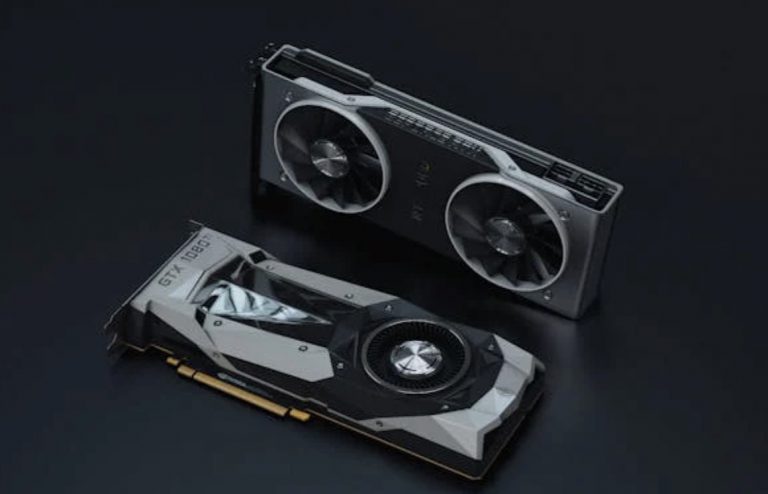Cloud computing has revolutionized the way we access and manage computing resources, and the integration of Graphics Processing Units (GPUs) has further enhanced this transformation.
This article delves into the myriad benefits of utilizing GPUs within cloud-based infrastructures.
Understanding GPUs in the Cloud
What are GPUs?
Originally designed for rendering graphics in video games, GPUs have evolved to perform computation-heavy tasks that benefit from parallel processing.
Unlike CPUs, GPUs manage thousands of threads simultaneously, making them highly efficient for a variety of complex computations.
How GPUs Enhance Cloud Computing
In a cloud setting, GPUs are deployed alongside traditional CPUs but are tasked with handling specific types of workloads that involve intensive data processing.
This setup allows for a more efficient division of tasks, where GPUs handle the heavy lifting for computation-intensive applications while CPUs manage general-purpose tasks.
Benefits of Using GPUs in the Cloud
Increased Processing Power
GPUs provide superior processing power for tasks that require handling large blocks of data simultaneously.
This capability is crucial for industries like video editing, 3D rendering, and scientific computing, where time and efficiency are of the essence.
Substantial Cost Savings
The cloud model offers a pay-as-you-go approach, which means you can access high-end GPU computing power without the initial capital investment in physical hardware.
This makes cutting-edge technology accessible and affordable for startups and smaller companies.
Immediate Scalability
With cloud GPUs, such as those offered by Gcore GPU cloud and Google GPUs cloud, scaling up your computing resources does not require physical hardware purchases or upgrades.
This immediate scalability is particularly beneficial during project spikes or when testing new applications, allowing for efficient adjustments without the usual overhead.
Unmatched Flexibility
Users can access GPU resources on the cloud from anywhere in the world, using any device that has internet connectivity.
This flexibility ensures that resources are available whenever and wherever they are needed, without geographical or hardware limitations.
Remote Accessibility
Cloud GPUs can be accessed remotely, enabling professionals to work on high-intensity projects from any location.
This accessibility is invaluable for remote teams and freelancers who rely on flexibility in their work environments.
Facilitated Collaborative Efforts
Multiple users can access the same GPU resources simultaneously, allowing for real-time collaboration on projects that would be too resource-intensive to run on individual machines.
This is particularly advantageous for industries such as digital content creation and scientific research.
Artificial Intelligence and Machine Learning
AI and ML models require extensive computational power to train, which GPUs can provide. This significantly speeds up these processes and enables more complex model development.
Gaming and Virtual Reality
Cloud GPUs allow gamers and VR users to experience high-quality, intensive graphics on devices that would not normally support such advanced features, democratizing access to the latest games and virtual experiences.
Data Analytics and Simulation
From financial forecasting to climate simulations, GPUs accelerate the processing of large datasets, enabling faster insights and more accurate simulations.
Challenges and Considerations
Security Concerns
As with any cloud service, the security of data processed by cloud GPUs is paramount. Users must ensure that their cloud provider offers robust security measures to protect sensitive information.
Data Transfer Speeds
While cloud GPUs are powerful, data transfer speeds can be a bottleneck, especially when dealing with large datasets.
Optimizing data architecture and network capabilities is crucial to maximizing GPU performance.
Frequently Asked Questions
-
Can I use cloud GPUs for short-term projects, or are they only cost-effective for long-term usage?
Absolutely cloud GPUs are ideal for both short-term and long-term projects. One significant advantage of cloud-based GPUs is their flexibility in usage terms.
For short-term projects, you can rent GPU power on an hourly or daily basis, which can be more cost-effective than investing in GPU hardware that you might not need after the project concludes.
This flexibility makes it suitable for temporary or experimental projects and businesses with fluctuating computational needs.
-
Do I need special skills to manage GPUs in the cloud?
Managing GPUs in the cloud does require some knowledge of cloud computing environments and possibly some understanding of the specific applications you are running.
However, many cloud service providers offer managed GPU services that simplify much of the technical management.
These services typically provide user-friendly dashboards and tools that help you deploy and manage your GPU resources without needing deep technical skills.
For more complex tasks, such as optimizing performance or integrating GPUs with specific applications, some technical proficiency might be necessary.
-
Are there any specific industries or fields where the use of cloud GPUs is particularly advantageous?
Cloud GPUs are particularly advantageous in fields that require heavy data processing and real-time computational capabilities.
Industries such as biomedical research, financial modeling, and engineering simulation benefit greatly from cloud GPU capabilities.
For instance, in biomedical research, GPUs are used for genomic sequencing and protein folding simulations.
In finance, they are employed for real-time risk assessment and complex quantitative models.
Engineering fields use cloud GPUs for simulations and stress tests in aerospace, automotive, and architectural design projects
Conclusion
The integration of GPUs into cloud platforms is a game-changer for many sectors, providing unmatched computational power, scalability, and flexibility.
By leveraging cloud GPUs, businesses and individuals can push the boundaries of what’s possible, driving innovation and efficiency across various applications.
Whether for AI, gaming, or data analysis, cloud GPUs offer a powerful tool for anyone looking to enhance their computational capabilities.

0 Comments